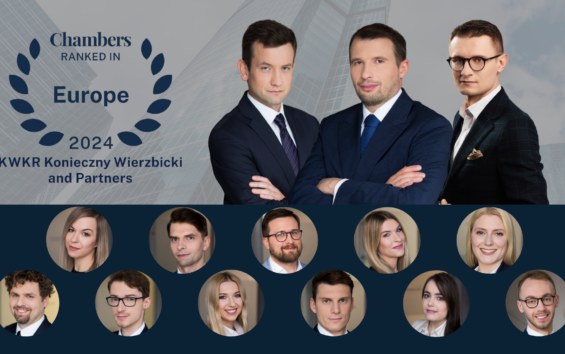
Although polish regulations do not specify the issue of employee outsourcing, this innovative strategy of company management has recently been becoming more and more popular, especially in the IT industry. It allows entrepreneurs to avoid the bureaucracy associated with the recruitment and personnel services, which ultimately results in a significant reduction in employee costs. What is employee outsourcing and why is the proper formulation of the agreement, concluded between the companies in which one provides the other with their human resources, so important?
Legal background of this model
At the very beginning, it should be emphasized that outsourcing has no legal regulations. The definition of this term says that separating tasks or functions from the organizational structure of an enterprise and delegating their execution to an external entity may be described as employee outsourcing. It has been formulated on the basis of a single provision in the Labour Code – Article 23 § 1 – which specifies the transfer of a part of an enterprise to another entrepreneur:
- § 1. When a workplace or part thereof is transferred to another employer, the latter becomes by law a party to the existing employment relations, subject to the provisions of § 5.
However, some aspects of this employment form are based only on the court judgment or on the (quite free and wide) possibilities of shaping the agreement between the parties. Often, therefore, situations arise in which this so called “contract” is concluded, allowing one entrepreneur to obtain employees of an external entity offering to outsource its personnel.
Interpretative problems
In practice, however, the implementation of this provision raises a lot of doubts among entrepreneurs interested in using this method of process optimization in their company because in some legal interpretations outsourcing is being treated as a body-leasing model. What does it mean? Interpretation problems relate to, among other things, the issue of benefits to which employees are entitled under the employment relationship. Outsourcing is therefore problematic in that an individual feels that he works with a different entity than the one with which he has a contract.
This generates situations in which employees often do not know from whom they can enforce payment of salary. In the case of arrears in their payment by an external entity or a possible inspection by the Social Insurance Institution (polish acronym – ZUS), the final settlement of a given case may take place:
- in legal proceedings,
by issuing an appropriate administrative decision by ZUS.
Therefore, the risks associated with employee outsourcing have caused the past resignation from this model in favor of “employee leasing” or “hiring employees”. It is worth emphasizing, however, that under Polish law, both terms are subject to separate legal regulations, which generates additional interpretation chaos.
How does it work in IT companies?
The safest and at the same time most popular model of employee outsourcing can be described most simply, based on the practices observed in software houses:
A contract is signed between the outsourcing service provider (software house) and the ordering party (external entity). The contract specifies, among other things, in what time and with what human effort a given order will be completed. On its basis, the software house separates and assigns its employees to a given project, in a way “leasing” them to an external entity with whom it has entered into a contract. As a result employees – even though they perform certain activities for the ordering party – remain in a constant employment relationship with the software house.
What is important when preparing a contract?
An entrepreneur interested in isolating and delegating specific functions or tasks to an external entity must keep in mind the Act of 13.06.2017 on the social security system. Due to this regulation, and in particular under Article 38a according which, in the event of a dispute regarding the determination of the real employer, the investigating authorities will be able to demand payment of outstanding claims from the employer using the work of outsourced employees.
Therefore, for this solution to contribute to more effective management of the company, the principles of cooperation conducted based on a properly drawn up outsourcing contract should be strictly observed. The entrepreneur should make changes in the organizational structure by separating the department directly involved in contact with the external entity. Limiting interference in this relationship minimizes the risk of incurring costly legal consequences.

